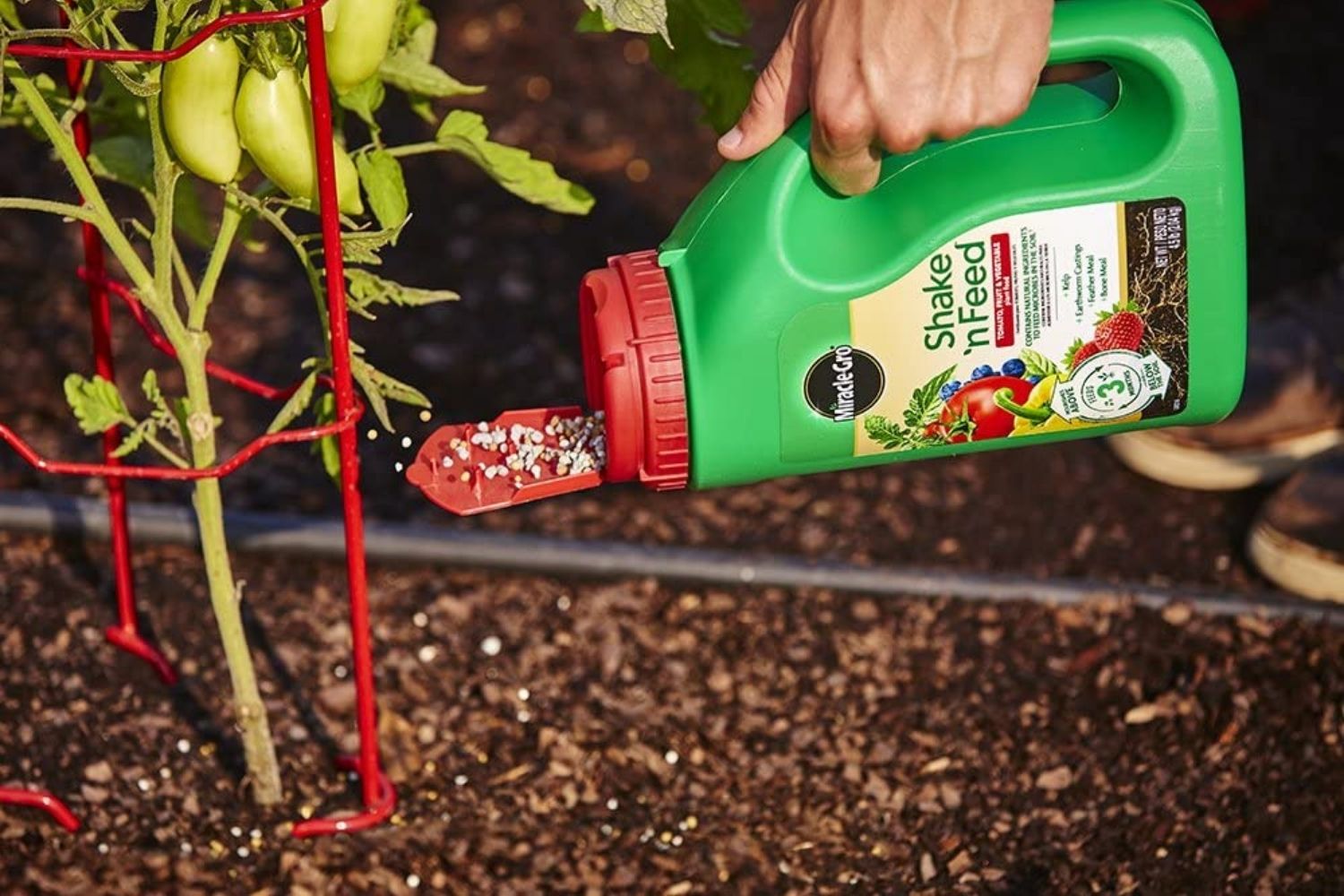Top-Rated Fertilizers for Peppers: Enhance Your Harvest High Quality
Top-Rated Fertilizers for Peppers: Enhance Your Harvest High Quality
Blog Article
Organic Vs. Synthetic Fertilizers: Which Is Best for Nurturing Healthy And Balanced Pepper Plants?
In the world of supporting healthy pepper plants, the option between natural and artificial fertilizers stands as a crucial choice with significant effects. While both options aim to give essential nutrients to sustain plant development, the subtleties of their influence on the dirt, plant health and wellness, and the environment spark an argument that echoes throughout the gardening community. Understanding the distinctive benefits and possible challenges of each plant food type is crucial for pepper farmers seeking to optimize their returns while preserving an eco-conscious and sustainable approach.
Advantages of Organic Plant Foods
Organic plant foods supply an environmentally-friendly and lasting technique to beneficial pepper plants, offering vital nutrients without making use of synthetic chemicals. These all-natural fertilizers are derived from natural resources such as compost, manure, bone dish, and seaweed, advertising dirt health and wellness and biodiversity. Unlike synthetic plant foods, natural choices release nutrients gradually, ensuring a constant and well balanced supply for pepper plants to flourish.
One substantial benefit of organic fertilizers is their capability to enhance soil framework and water retention. By enhancing dirt health, natural fertilizers promote useful microbial task, which aids in nutrient uptake by pepper plants. Furthermore, natural plant foods decrease the danger of chemical run-off, shielding water sources from pollution and protecting the environment.
Moreover, organic fertilizers add to long-term soil fertility by promoting the development of valuable dirt microorganisms. These organisms help break down organic matter, releasing nutrients in a type that is quickly available to pepper plants. best fertilizers for peppers. By cultivating a healthy and balanced dirt ecosystem, organic fertilizers sustain lasting pepper cultivation practices that benefit both plants and the environment
Drawbacks of Synthetic Fertilizers
Artificial fertilizers, in contrast to their organic equivalents, posture numerous drawbacks when used to nourish pepper plants, influencing both plant wellness and environmental sustainability. One significant downside of synthetic fertilizers is their propensity to seep nutrients from the soil quickly.
Furthermore, the overuse of synthetic plant foods can add to water contamination. Excess fertilizers not taken in by plants can get rid of right into water bodies, causing eutrophication, where algae flowers diminish oxygen levels in the water, harming water life. Synthetic plant foods are usually derived from non-renewable sources, such as fossil fuels, adding to carbon emissions and environmental degradation throughout their production.
Nutrient Absorption Contrast
Effective nutrient absorption plays an essential duty in the general health and growth of pepper plants. When contrasting artificial and natural plant foods in terms of nutrient absorption, organic plant foods have the advantage of giving a much more balanced and slow-release resource of nutrients (best fertilizers for peppers). Organic plant foods include a selection of macro and trace elements that are not just helpful for the plants yet likewise advertise healthy dirt microbial activity, which helps in nutrient uptake. On the other hand, synthetic plant foods often supply a fast release of nutrients, which can bring about leaching and overflow, causing reduced nutrient absorption prices by the plants.
Furthermore, natural plant foods boost soil structure and water retention ability, allowing pepper plants to access nutrients extra effectively. This better soil top quality assists in origin growth, making it possible my website for far better nutrient absorption. Artificial plant foods, although originally enhancing plant development because of their high nutrient concentrations, may prevent lasting nutrient absorption by derogatory soil health over time.
Ecological Effect Considerations

On the various other hand, synthetic fertilizers, although often even more quickly readily available and concentrated to plants, can have harmful effects on the setting if not applied effectively (best fertilizers for peppers). Their production requires high power inputs, resulting in greenhouse gas emissions and adding to environment adjustment. The overflow of excess artificial fertilizers can pollute water resources, leading to eutrophication and hurting marine ecosystems.
Best Fertilizer Practices for Peppers
To attain this, it is crucial to adhere to ideal plant food methods tailored to the specific needs of pepper plants. One important method is to perform a dirt test before applying any type of plant foods.
An additional important method is to fertilize pepper plants at the correct time. Commonly, peppers take advantage of getting fertilizer at growing and after that once again when they start to blossom. Over-fertilizing can bring about nutrition discrepancies and harm the plants, so it is essential to comply with recommended application prices.
Furthermore, choosing a balanced plant food with an NPK ratio that suits pepper plants' demands is fundamental. Eventually, combining artificial and organic fertilizers deliberately can assist support healthy pepper plants while lessening environmental influence.
Conclusion

Organic plant foods supply a sustainable and environmentally-friendly strategy to nourishing pepper plants, offering crucial nutrients without the use of synthetic chemicals. Unlike synthetic plant foods, natural options release nutrients slowly, making sure a steady and balanced supply for pepper plants to grow.
Synthetic fertilizers, in contrast to their organic counterparts, useful reference present numerous drawbacks when utilized to nourish pepper plants, affecting both plant wellness and ecological sustainability. When contrasting artificial and natural plant foods in terms of nutrient absorption, natural fertilizers have the advantage of offering a much more well balanced and slow-release resource of nutrients.In addition, organic fertilizers enhance soil structure and water retention capacity, allowing pepper plants to access nutrients much more effectively.
Report this page